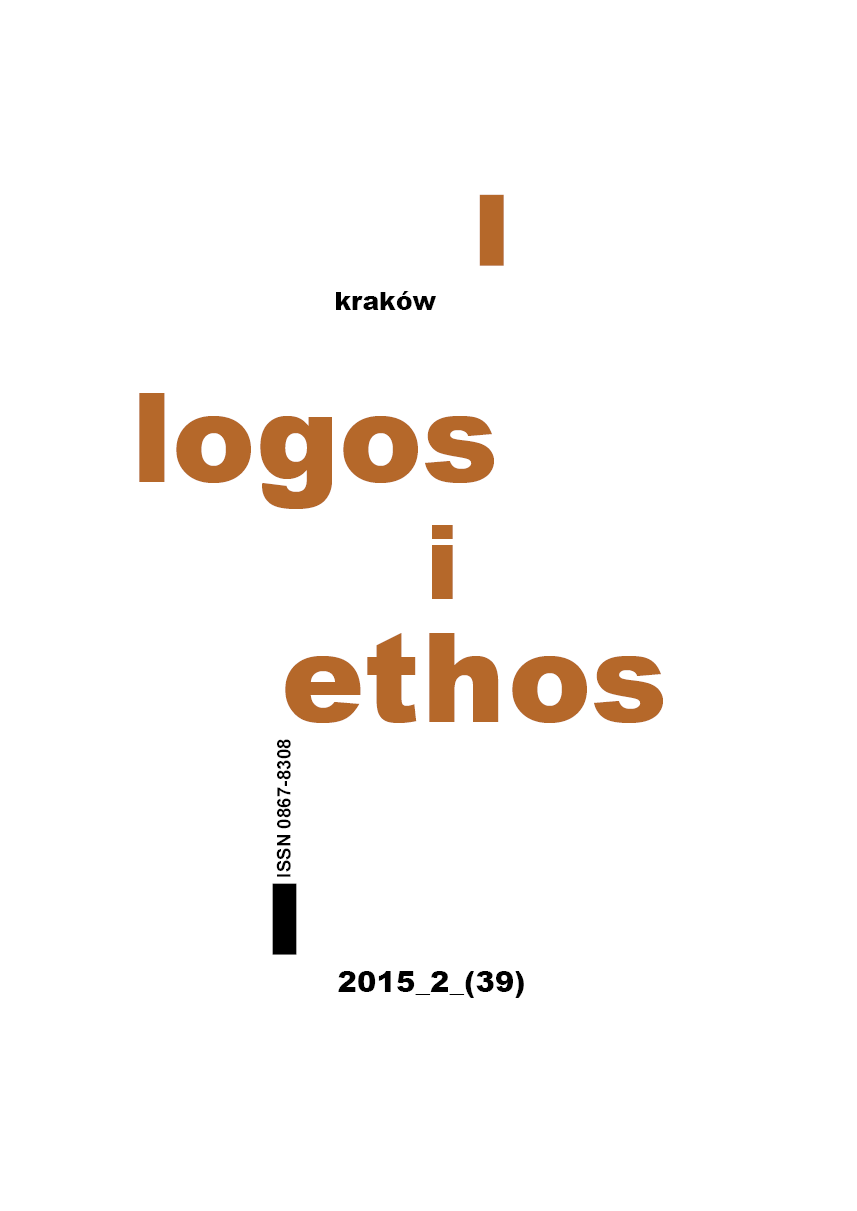Form, essence and matter in Aquinas’ early work De ente et essentia. Notes to the metaphysical foundation of Aquinas’ psychology
DOI:
https://doi.org/10.15633/lie.1537Słowa kluczowe:
Látka, forma, bytí/bytnost, fyzika, metafyzika, Tomáš Akvinský, Avicenna, Aristotelés, duše, člověkAbstrakt
Článek analyzuje místo materie (první látky) ve filosofii Tomáše Akvinského, a to ze systematického i historicko-filosofického aspektu. Ukazuje, že v jeho recepci filosofických nástrojů pocházejících od Aristotela, sehráli důležitou a velmi komplexní roli arabská tradice (Avicenna a Averroes) i její interpreti první poloviny 13. stol. V článku je rovněž prezentován způsob, pomocí kterého Akvinský dokázal sjednotit hylemorfismus s metafyzickou teorií reálné distinkce esse/essentia, jímž si připravil půdu pro nedualistické pojetí člověka.Bibliografia
Maurer A., Form and essence in the philosophy of St. Thomas, “Mediaeval Studies” 13 (1951), p. 165–176.
Hyman A., Aristotle’s ‘first matter’ and Avicenna’s and Averroes’ ‘corporeal form’, [in:] Harry Austryn Wolfson jubilee volume, vol. 1, Jerusalem 1965, p. 385–406.
Bazán B. C., The highest encomium of human body, [in:] Littera, sensus, sententia. Studi in onore del prof. C. J. Vansteenkiste, a cura di A. Lobato, Milano 1991, p. 99–116.
Bazán B. C., The human soul: form and substance? Thomas Aquinas’ critique of eclectic Aristotelianism, “Archives d’Histoire Doctrinale et Littéraire du Moyen Âge” 64 (1997), p. 95–126.
Fabro C., La nozione metafisica di partecipazione secondo S. Thomaso d’Aquino, 3ʳᵈ ed. (Turin 1963).
Sweeney E., Supposition, signification, and universals, „Freiburger Zeitschrift für Philosophie un Theologie“ 42 (1995), p. 267–290.
Stump E., Non–Cartesian substance dualism and materialism without reductionism, “Faith and Philosophy” 12 (1995), p. 505–531.
Gilson É., Élements d’une métaphysique Thomisté de l’être, “Archives d’Histoire Doctrinale et Litteraire du Moyen Age” 40 (1973), p. 7–36.
Klocker H. R., Two Quodlibets on essence/existence, “The Thomist” 46 (1982), p. 267–282.
Lehrberger J., The anthropology of Aquinas´s “De ente et essentia,” “The Review of Metaphysics” 51 (1998), p. 829–47.
Aertsen J. A., Medieval philosophy and the transcendentals: the case of Thomas Aquinas, Leiden 1996.
Wippel J. F., Aquinas route to real distinction: a note to “De ente et essentia,” “The Thomist” 43 (1979), p. 275–295.
Wippel J. F., The metaphysic thoughts of Thomas Aquinas, Washington 2000.
Owens J., Stages and distinction in “De ente”: a rejoinder, “The Thomist” 45 (1981), p. 99–123.
Owens J., Thomas Aquinas (B. CA. 1225; 1274), [in:] Individuation in scholasticism: the latter Middle Ages and the counter reformation, ed. J. J. E. Gracia, Albany 1994, p. 173–194.
Sweeney L., Existence/essence in Thomas Aquinas’s early writings, “Proceeding in the American Catholic Philosophical Association” 37 (1963), p. 97–130.
Pasnau R., Thomas Aquinas on human nature, Cambridge 2004.
Zavalloni R., Richard de Mediavilla et la controverse sur la pluralité des formes, Louvain 1951.
Pobrania
Opublikowane
Numer
Dział
Licencja
Autorzy publikujący w czasopiśmie udzielają jego wydawcy zgody o następującej treści:
- Autor zachowuje autorskie prawa majątkowe do utworu, a jednocześnie udziela wydawcy czasopisma zgody na jego pierwszą publikację w wersji drukowanej i wersji online na licencji Creative Commons Uznanie autorstwa 4.0 Międzynarodowe oraz zgody na wykonywanie opracowań, w tym przekładów.
- Autor ma możliwość udzielania zgody niewyłącznej na opublikowanie utworu w wersji, która ukazała się w czasopiśmie (np. zamieszczenia go w repozytorium instytucjonalnym lub opublikowania w książce), wraz z informacją o jego pierwszej publikacji w czasopiśmie.
- Autor może umieścić swój utwór online (np. w repozytorium instytucjonalnym lub na swojej stronie internetowej) jeszcze przed zgłoszeniem utworu do czasopisma.

